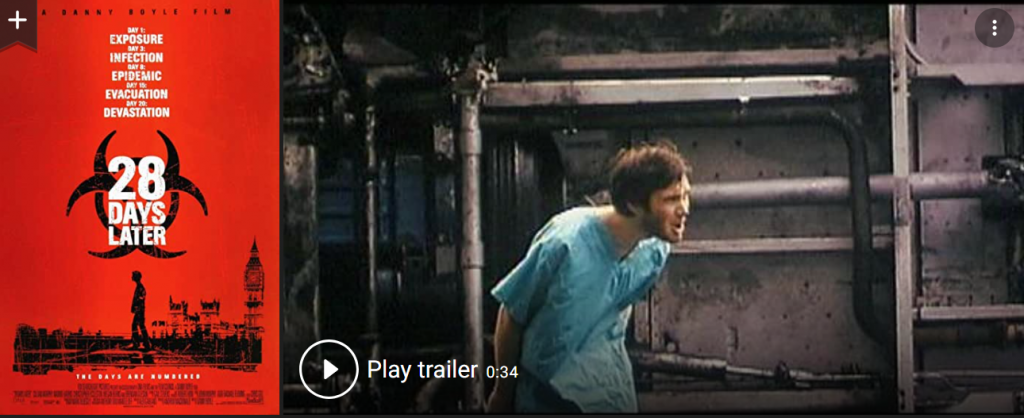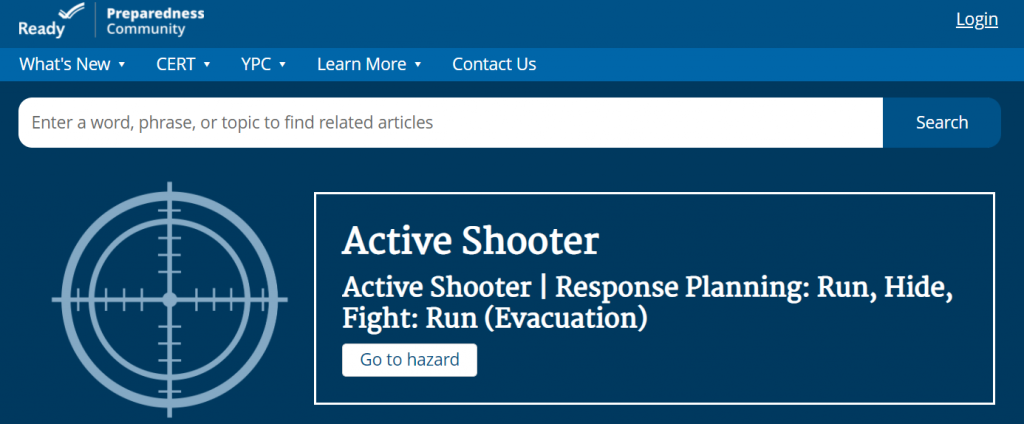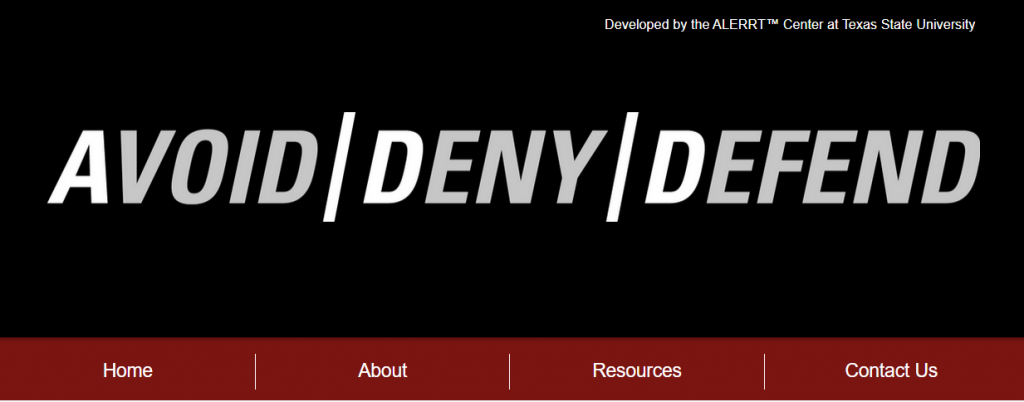I’m trying something new today with our blog. Most of you know by now, Ed is out galivanting around the world allowing us to live vicariously through him… thank you Wilksie!
Ed’s alluded to a few upcoming items he’s got to talk about and reports from the field. I’m excited to see what he’s got for us!
Until then, I wanted to capture five of some of the more common questions we hear in the preparedness community, and answer them from my humble perspective.
So, let’s get started, shall we?
Why did you get into preparedness?
I was unknowingly being instructed in the ways of preparedness by both my mom and dad for most of my childhood. My dad lived out being prepared on a day to day basis, and it was very impactful living through multiple recessions and very little money.
If you want to hear more about my parents, I had the distinct pleasure of interviewing them in some earlier podcast episodes, when I was on a recent trip to the four corners area. You can find them here:
Link to Dorie Marshall Episode
https://podcast.genxtalkin.com/1819710/9636621-gxt-i-ep07-dorie-marshall
Link to Brooks Marshall Episode Pt 1
https://podcast.genxtalkin.com/1819710/9923054-gxt-i-ep08a-brooks-marshall-pt-1
Linke to Brooks Marshall Episode Pt 2
https://podcast.genxtalkin.com/1819710/9998293-gxt-i-ep08a-brooks-marshall-pt-2
When I left home, I ran into many scenarios in which being prepared would have been better, but I was not, and I suffered the consequences.
- I’ve been robbed a couple of times while traveling.
- I’ve been scammed by a three card Monty player.
- I’ve been stuck in the cold, overnight, broken down vehicle, in sub-zero weather with very little heat or shelter.
- And the lessons I’ve learned through those and so many more are what drive me today to be better prepared
As for preparedness itself, for me it all Started out as kind of a fun thing. Zombies, apocalyptic living, how would I survive, and so on. Of course, Y2K came with all those fears.
And then, there was this period we lived in a townhome community and ours was one of the only ones on the block that had a fireplace. Across the street there was this nice little family with mom and dad and two very small children. Weather was forecast to be in the single digits during a snowstorm and the power had been out for about a day and a half. And I remember going over there and offering for them to come stay with us if they started getting too cold. That was kind of an eye opener in that even in “normal” times, individuals and families could be hit with difficult choices.
I really just started doing my own prepping of sorts. And eventually my wife jumped on the bandwagon. We’ve been going strong with it for a couple of decades now at least.
What movies/shows or books influenced your preparedness planning most?
Preparedness Movies
There’s so many movies and books. 28 days later. That was actually one of my favorite and Still is one of my favorite, zombies movies with Cillian Murphy. The fact that it showed how quickly (28 days) things went to complete hell was impactful.

World War Z. Again, very short timeline. And the way they portrayed a massive apocalyptic event that was impressive. I will say that the book was much better because it portrayed multiple scenes from a zombie apocalypse. The book itself is absolutely fantastic!
Movie – https://www.rottentomatoes.com/m/world-war-z
Book – https://www.goodreads.com/book/show/8908.World_War_Z
And then I remember back in the 90s, there was a movie called Outbreak with Dustin Hoffman. Wow that was an impactful, epidemic type of movie. And the thing that was powerful about that one as well is how the government could come in and essentially enveloped this town and try to block people from getting in and out of the town. People in general would attempt to fight back and do what they thought was right.
https://www.rottentomatoes.com/m/outbreak
Of course, so much talk has gone on about The Walking Dead over the past number of years. I would say earlier seasons, maybe up to season four were very good, but after that it kind of got a little weird. But same type of scene from 28 days later where the guy wakes up and finds that the world has completely changed.
Preparedness Books
As far as books go, there’s the old standby One Second After by William Forstchen. That is a very powerful book, primarily because the author himself is a historian and he has connections with government. And it was actually a bit of a sad story. He was part of this Commission that was tasked with finding out what would happen if an EMP were to hit the United States and how in what ways it might affect the US most. When his Commission was getting ready to approach Congress with their report, 911 happened. And so it all was forgotten. The only way he was able to present that information to the public was in a fictional novel. The result was One Second After. Absolutely fantastic book! And not just all doom and gloom. There’s a lot of successful things they did as a community
https://www.goodreads.com/book/show/4922079-one-second-after
Of course, Going Home, by A. American is a fantastic book for “get home safe” type of scenarios. This is more of a EMP type of scenario, but a fantastic book and the series goes on after the first book. I still love the first one the most.
https://www.goodreads.com/book/show/17085384-going-home
And then there’s the Survivalist series with the Mason Raines character by Arthur Bradley. That’s an excellent book and book series. It explains how a US Marshall might respond. And not only how the goodness of a US Marshall might change the world, but also how certain evil might make the world worse. It also puts on display how you can fight back against evil in really successful ways.
https://www.goodreads.com/book/show/18828336-frontier-justice
There’s companion gardening books and homesteading books that of course shouldn’t be overlooked to gain knowledge.
So, reading as much as you can about being prepared is absolutely recommended.
Shelter in Place or Bug Out?
This completely depends on the scenario. In our area, there is a potential, very unlikely, but a potential of nuclear attack or other nuclear type of threat. That said, the thought of sheltering in place might not be the best approach to protecting yourself and family. If it is known that a life altering event is approaching and the best bet would be to leave and leave quickly than bugout.
To Bug Out also typically implies, with haste! Hence the bug out bag to get out as quickly as possible. But this term bug out, doesn’t mean the same thing to different people. To bug out to some may mean, being instructed to do so by government agencies, like FEMA, to move yourselves and family to a government provided shelter.
However, for those who have planned and prepared ahead of time, to bug out may simply mean moving yourself to the next phase in your preparedness plan. Maybe you quickly move to your first bug out location, like another family member outside the affected area.
I suspect there are very few reasons why a person would leave the safety of their home to move to an unknown scenario, like a government shelter. When they could just as easily protect themselves within their known home and area.
A great thought heading into your planning is to have a decision-making tree that says if X+Y happens, then leave. But until that point, shelter in place and implement next steps in your plans. By the way, this can and should be a part of your everyday prepping as well. For instance, it’s much more likely for an area to be hit with a freezing storm or hurricane, causing power outage, than a nuclear attack.
But the same logic remains true. If X+Y happens, for instance, if power is lost in your local area due to a recent weather event, and all indications are it will be out for 3-4 days. Decide if it would be best to wait it out with generators, solar power, and cooking over a fire. Or if it would be better to “bug out” to a local hotel. Keeping in mind pets and other family specific cases.
If faced with an active shooter-type situation, would it be better to run and hide, or attack the shooter?
One thing I think we could all agree to is that nobody really knows what they are going to do when faced with this type of event, until they are there! Something that can help a person to understand their own potential in situations, is to train for them and place themselves into very similar situations.
- Seek out training from local law enforcement
- read books about real life scenarios
- try to become more familiar with the real scenarios and how they shake out.
This may help you keep a sound mind when faced with potentially disturbing events.
There are several ways survival experts recommend responding to active assailants. By now many have already heard of the “Run-Hide-Fight” response.

- First you run – to keep yourself alive
- Next you hide – to make sure the assailant can’t see you
- If all else fails, then you fight – to hopefully protect yourself and give yourself a fighting chance to survive until the end of the event.
But I would submit to the listeners some additional thoughts. My wife and I recently went to an active assailant presentation, and they changed it up a bit with some very good logic.
The main trouble with the “Run-Hide-Fight” philosophy is it puts into the mind of the person experiencing the trauma, from the very beginning, that they are a victim! So, the person’s mentality is already coming from a position of fear and possible death. I must RUN, I must HIDE! And then magically, somehow, they are next supposed to remove all that fear and then… start to fight!
So, the presenter challenged that approach with a new one.
“Avoid-Deny-Defend”

Simple adjustments to the words, but these are ACTIVE in their engagement with the assailant.
- To RUN, in a person’s mind, means to RUN AWAY! But to “Avoid” means to actively understand from where the danger is coming. Then avoid that danger with the most logical approach. It may mean moving closer to the danger to move to the next step.
- To HIDE also can imply, to cower, again prompting more of a fear reflex. But to “Deny”, can prompt a person to continually deny the attacker access to the area in which the resistance is located.
- And to FIGHT implies this is your last chance effort to life – to fight like hell! But if your mindset is already one of positive, “I will get out of this danger safely”, then the natural course of thinking is to be defending yourself from harm.
Finally, if your mindset is actively engaged with the assailant or other danger, it naturally causes you to think and observe much better than if you were to simply RUN, HIDE or FIGHT! So that, after the event is concluded and you are safe, you can then TELL. You can inform authorities of what occurred with confidence. Your mental response is no longer “I’ve been a victim and will forever be negatively affected by this trauma”. But you’ve done your part to protect yourself and protect others through a difficult event.
What would be some means of preparedness communication in a post-apocalyptic world?
One of the biggest questions is how bad of a “post-apocalypse” world we are talking about here. If it’s full on mad-max or EMP (electro-magnetic pulse) type of world, that’s one thing, but if it’s an economic collapse, then the world might be affected in a totally different way.
Most thoughtful scenarios for what could one day become the “new normal” apocalyptic world are those that would happen over time.
- Economic collapse
- running out of fuel
- adverse government takeover
These are more like “frog in hot water” events, and theoretically, persons, families, communities could prepare better ahead of time.
- Begin to come closer together as a unit (family or community).
- Begin recognizing existing HAM radio users and CB or walkie-talkie options that might be available within the area.
- Establish codes that can be used between known group members to ensure messages are clear and reach the intended persons.
- Establish ahead of time a means to power said devices, whether they be solar, wind, or other, this will be important for ongoing communications.
If the scenario is more EMP or CME (coronal mass ejection) type of event, there would be a more immediate result, and very little planning could have occurred. This could make things much more difficult, but still doable. First, consider planning and establishing a small faraday cage for EMP events. No need for massive bunker or house-sized locations for this type of protection. But understand EMP and CME enough to understand what devices could be affected and protect those devices.
For instance, although some speculate it is ALL electronic components within ALL newer vehicles that are susceptible to EMP, this is not likely the case (based upon testing that’s been done). There are certain components (perhaps a starter) that could be affected. So, if a backup of that unit itself is housed in a faraday enclosure, then the component itself only needs to be replaced and the vehicle is back up and running.
The reality is people have been communicating throughout time with images left for passers-by, or smoke signals, all the way to tying two cans together and 5G. There will always be ways to communicate, it will just require a bit of ingenuity.
It’s been fun answering these questions. It’s always helpful to exercise our minds to think through preparedness scenarios. If you get a chance to look us up on social media @genxtalkin, we’d love for people to comment their own thoughts. Our Youtube channel is also a great place to do this. If you get a chance, check us out and drop is a subscribe there.
For now, I’ll leave you to one last thought to always be preparing to respond well and recover faster.
Until next time, this is @genxtalkin, signing off!
